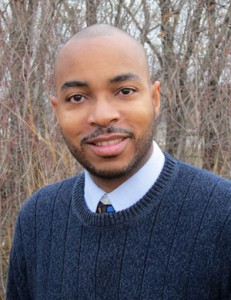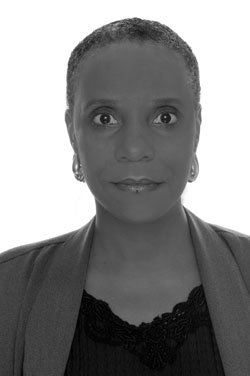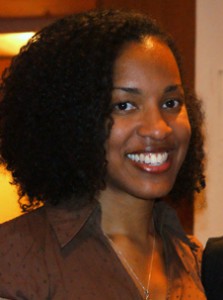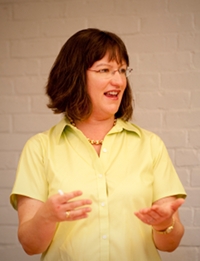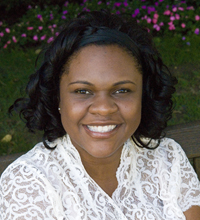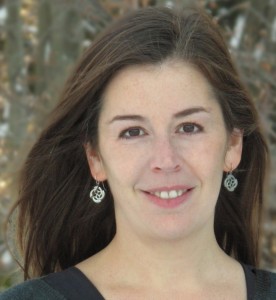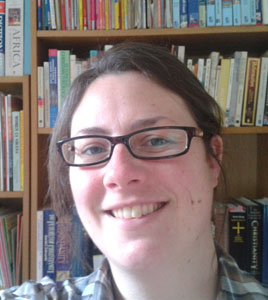
Paula Aymer
Paula Aymer is Associate Professor in the Department of Sociology at Tufts University in Medford, Massachusetts. She is also Director of the undergraduate minor, Africa and the New World. Her research and teaching areas are Religion, Immigration and Labor Migration, Family Cross-Culturally, Caribbean Studies, Racial and Ethnic Minorities. Her current book project is entitled Evangelical Awakenings in the Anglophone Caribbean (1850-1950 )and (1950s-Present). She has presented at numerous professional meetings; recent talks include “Heathen Stubbornness: Early Wesleyan Methodist Missions in Grenada, West Indies 1790s – 1830s” and “Spiritual Warfare and the Restructuring of Caribbean Societies.”
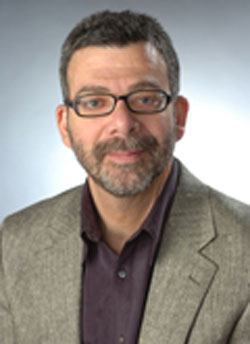
John Burdick
John Burdick (Ph.D., City University of New York) is Professor of Anthropology at Maxwell School of Syracuse University. Professor Burdick’s current research charts the causes and effects of a new religio-political movement in Brazil: an emerging network among evangelical churches uniting their faith to a black consciousness and anti-racist agenda. He is author of numerous publications including Looking for God in Brazil (California, 1993), Blessed Anastacia: Women, Race and Popular Christianity in Brazil (Routledge Press, 1998), Legacies of Liberation (Ashgate, 2004) and “The Singing Voice and Racial Politics on the Brazilian Evangelical Music Scene,” Latin American Music Review 30, no. 1 (2009): 25-55.
Melvin L. Butler earned his Ph.D. in music from New York University in 2005 and is an assistant professor of music at the University of Chicago. Prior to this appointment, he taught at the University of Virginia (2005-2008). An ethnomusicologist with broad interests in music and religion of the African diaspora, he has conducted field research on popular music making in relation to charismatic Christianity in Haitian and Jamaican communities. In these transnational Caribbean contexts, he interrogates the cultural politics of musical style and religious expression while attending to the role of performance in constructing individual and collective identities. For over twenty years, he has also worked professionally as a saxophonist with many jazz artists, and now performs mostly with Brian Blade and the Fellowship Band. Widely published in ethnomusicology, musicology, and religious studies journals, Professor Butler’s recent publications include “The Weapons of Our Warfare: Music, Positionality, and Transcendence Among Haitian Pentecostals,” Caribbean Studies 36, no. 2 (2009): 23-64; and “Thoughts on the Intersection of Race and Faith in the Study of Popular Music,” Journal of Popular Music Studies 19 (1) (April 2007): 113-117.
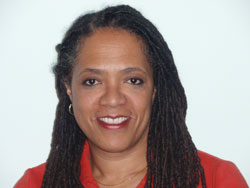
Judith Casselberry
Judith Casselberry, B. of Music (Berklee College of Music), MA (Wesleyan University), PhD (Yale University, 2008) is Assistant Professor of Africana Studies at Bowdoin College. She is currently completing an ethnography entitled, Justified by Works: Gender, Faith and Power in Black Apostolic Pentecostalism, which examines New York religious women’s spiritual, material, social, and organizational work through the lens of black women’s labor theories. Her most recent articles include “The Politics of Righteousness: Race and Gender in Apostolic Pentecostalism,” in Transforming Anthropology: the Journal of Black Anthropologists (forthcoming) and “Were We Ever Secular?: Interrogating David Brown on Gospel, Blues, and Pop Music,” in Theology, Aesthetics, and Culture: Responses to the Work of David Brown, Robert MacSwain and Taylor Worley, editors. Oxford: Oxford University Press, (Forthcoming September 2012). Casselberry’s interest in African American religious and cultural studies, with particular attention to gender, guides her research agenda. In addition to research on organized Pentecostalism, she is working on a project examining Grace Jones’ Pentecostal roots and their imprint on her performance aesthetics and identity. Casselberry’s interest in links between lettered and performed scholarship comes from her career as an academic and performer.
Deidre Crumbley Growing up in inner city Philadelphia, Dr. Crumbley never imagined that one day she would be an anthropologist. In fact, as a child in a female-founded millenarian Sanctified church, she did not expect to see adulthood. This religious background informed her completing a master’s degree from Harvard Divinity School in comparative religion, and a Ph.D. from Northwestern University in anthropology. The latter entailed four years of fieldwork in Nigeria, culminating in her book, Spirit, Structure and Flesh: Gendered Experiences in African Instituted Churches among the Yoruba (2008); her newest book, Saved and Sanctified: The Rise of a Storefront Church in Great Migration Philadelphia (April 2012), is a historically embedded ethnography of the church in which she was raised. Dr. Crumbley has taught at the U. of Ibadan (Nigeria), Rollins College, the U. of Florida, and she is now on the faculty of North Carolina State University.
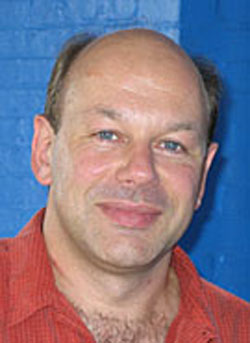
Alexandre Dauge-Roth
Alexandre Dauge-Roth is Associate Professor of French and Francophone studies at Bates College. He has published numerous articles on the representation of the genocide against the Tutsis in literature, testimony, and film. He published “Writing and Filming the Genocide of the Tutsi in Rwanda: Dismembering and Remembering Traumatic History” in 2010 with Lexington Books and is currently working on a book entitled “Who Speaks Behind the Archive? Witnessing and Documenting Personal and National Reconciliation in Post-Genocide Rwanda.” His work in French and Francophone studies examines testimonial literature as a genre and analyzes social belonging through historical, political, and medical readings of the body. He has explored representations of AIDS in Sub-Saharan Africa through the works of Koulsy Lamko and Fanta Regina Nacro, graft and transplant as prominent metaphors for the migrant and the host in the works of Malika Mokeddem and Jean-Luc Nancy. He has published essays on Hervé Guibert, François Bon, Georges Perec, and Claude Simon. In 2007, Dauge-Roth hosted an international conference, “Rwanda: From National Disintegration to National Reunification” at Bates College and created “Friends of Tubeho,” a non-profit organization that funds educational scholarships for orphans of the genocide in Rwanda.
Marla F. Frederick is Chair of the Committee on the Study of Religion, Professor of the Study of Religion, and Professor of African and African American Studies. She received her Ph.D. in cultural anthropology from Duke University. Her research interests include questions emerging from the intersections of religion, race, gender, media, politics and economics. Frederick is the author of Between Sundays: Black Women and Everyday Struggles of Faith, a richly detailed ethnography exploring the complex lives and faith commitments of women in rural North Carolina. Her co-authored book, Local Democracy Under Siege: Activism, Public Interests and Private Politics, won the 2008 Best Book Award from the Society for the Anthropology of North America. She is currently completing an ethnography entitled, “Colored Television: Religion, Media and Racial Uplift in the Black Atlantic World.” This work teases out a triangulated approach to understanding how African American and African descended producers, distributors and consumers of religious broadcasting approach and make meaning of mediated religion. It addresses concerns related to the rise of prosperity ministries in poor communities as well as the dramatic rise of African American religious broadcasters on television. She is also co-authoring a manuscript with anthropologists John Jackson and Carolyn Rouse, entitled “Televised Redemption,” which examines how Black Muslims, Christians and Hebrew Israelites make use of media in the strategic deployment of their racial, economic and religious views of social uplift.
Cheryl Townsend Gilkes 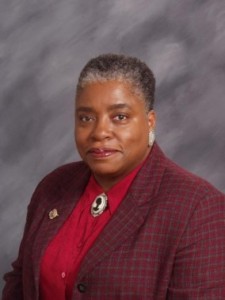 (Ph.D., Northeastern University) is John D. and Catherine T. MacArthur Professor of Sociology and African-American Studies and Director of the Program in African American Studies at Colby College. Her seminal text, If It Wasn’t for the Women: Black Women’s Experience and Womanist Culture in Church and Community (Orbis Books, 2001) is foundational in gender and Pentecostal studies.
(Ph.D., Northeastern University) is John D. and Catherine T. MacArthur Professor of Sociology and African-American Studies and Director of the Program in African American Studies at Colby College. Her seminal text, If It Wasn’t for the Women: Black Women’s Experience and Womanist Culture in Church and Community (Orbis Books, 2001) is foundational in gender and Pentecostal studies.
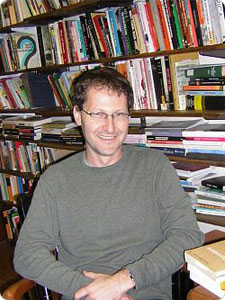
David Gordon - Bowdoin College
David Gordon received his B.A. from the University of Cape Town, South Africa, and his Ph.D. from Princeton University. He has taught at a variety of universities in South Africa and in the USA, and presently teaches at Bowdoin College. His research and publications focus on the history of southern and central Africa over the last two centuries. They reflect interests that include the influence of Atlantic and Indian Ocean trading networks, British and Belgian colonialism, changing property regimes, environmental cultures, the historical imagination, and spiritual agency. His most recent book, a history of how spiritual beliefs have influenced human agency, is entitled Invisible Agents: Spirits in a Central African History, and will be published by Ohio University Press in 2012. He has also edited a collection with Shepard Krech entitled Indigenous Knowledge and the Environment in Africa and North America (Ohio University Press, 2012). His first book, a history of changing tenure rules and forms of wealth from the pre-colonial to the post-colonial periods in the borderlands of Zambia and the Democratic Republic of the Congo, Nachituti’s Gift: Economy, Society and Environment in Central Africa, was published by the University of Wisconsin Press, and was a finalist for the Herskovits award for the best book in all disciplines of African Studies. He has published articles in numerous scholarly journals, including the Journal for African History, Journal of Southern African Studies, William and Mary Quarterly, and Comparative Studies in Society and History. Professor Gordon teaches a variety of classes in which he shares his fascination for the history of Africa and confronts the challenging ethical, political and methodological issues faced by students of African history.
Elizabeth McAlister, (Ph.D. Yale, 1995) is Associate Professor of Religion at Wesleyan University in Middletown, CT. Her research focuses on Afro-Caribbean religions, transnational migration, the New Apostolic Evangelical movement, and race theory, with a focus on Haiti. McAlister is author of Rara! Vodou, Power and Performance in Haiti and its Diaspora (University of California Press, 2002) that is an ethnography of a musical, religious, and political festival practiced by the poor black majority in Haiti. Her second book, Race, Nation, and Religion in the Americas (Oxford University Press, 2004), is a volume co-edited with Henry Goldschmidt, which theorizes race and religion as linked constructs. McAlister has produced three compilations of Afro-Haitian religious music: Rhythms of Rapture, Angels in the Mirror, and Rara, the CD that accompanies her first book. Her current research examines the rise of the New Apostolic Reformation, or “Spiritual Warfare” movement and its global networks, particularly in the circuits between the United States and Haiti. Some of this research will be published in two forthcoming articles in the journal Studies in Religion/Sciences Religieuses and in a University of Chicago Press volume edited by Paul C. Johnson on Possession in Black Atlantic Religions.
Yolanda Pierce is an Associate Professor of African American Religion and Literature at Princeton Theological Seminary. She holds a Ph.D. and a M.A. degree from Cornell University and undergraduate degrees from Princeton University. Her teaching and research specialties include African American Religious History, Womanist Theology, African American Literature, and 19th Century American Culture. Her first book, Hell Without Fires: Slavery, Christianity & the African American Spiritual Narrative examined African religious practices and ceremonies in slave culture. Her forthcoming book “With Fear and Trembling: Religious Ecstasy & African American Cultural Expression,” examines the contemporary practices of glossolalia, divine healing, and spirit possession. An ordained minister, Yolanda Pierce is also a member of various professional organizations, including the Modern Language Association, the American Academy of Religion, and the American Historical Association. She blogs on her website, “Reflections of an Afro-Christian Scholar,” http://yolandapierce.blogspot.com/.
Laura Premack will join the Bowdoin faculty in the fall as Andrew W. Mellon Postdoctoral Fellow in Africana Studies and Latin American Studies. A graduate of Wesleyan (B.A.) and Harvard (Ed.M.), she is currently finishing her Ph.D. in Global History at the University of North Carolina at Chapel Hill with the support of the Gerda Henkel Foundation of Germany. Her dissertation subject is “Missionaries, Prophets, Spirits and Demons: The Global Pentecostal Movement in Brazil and Nigeria, 1910-2010,” and her research interests include globalization, religion, race, nation, diaspora, culture, and the lived experience of hope.
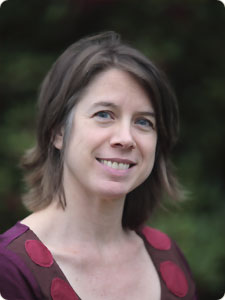
Elizabeth Pritchard
Elizabeth Pritchard is associate professor in the department of religion at Bowdoin College, where she offers courses on Christianity, gender and religion, sexuality, and progressive religious movements. Her research areas include secularization, political theology, as well as gender, religion and politics. She has published a number of articles on the theological rhetoric of Marxist and radical democratic theorists, feminism and religion, mobility and religion, and theories of religion and agency. A long-time member of the editorial board of the Journal of Feminist Studies in Religion, she is currently the editor of its Religion and Politics section. She is completing a book-length manuscript entitled Secular Promiscuities: Political Theology and Liberalism and has launched a research project on a global Catholic progressive church movement.
Jane Soothill completed her PhD at The School of Oriental and African Studies, London, in 2006. Her book Gender, Social Change and Spiritual Power: Charismatic Christianity in Ghana examines the gender implications of the fastest growing movement in Africa’s Christian sector. She has been interviewed by the BBC’s Radio 4 about the position of women in Africa’s new Pentecostal/charismatic churches, and continues to publish in this area. Jane is currently a Reasearch Associate at SOAS.
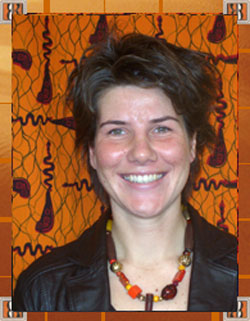
Linda Van de Camp
Linda van de Kamp (PhD VU University Amsterdam, 2011), is a cultural anthropologist and a postdoctoral researcher at the department of Cultural Studies, Faculty of Humanities, Tilburg University, The Netherlands. From 2010-2011, she coordinated the International Consortium for Development Partnerships (CDP) devoted to conducting collaborative research activities in Africa at the African Studies Centre, Leiden and in close cooperation with CODESRIA, Dakar. Her research activities concentrate on religion and ritual, South-South transnational connections, gender and reproductive issues, cities, violence, and insecurity. Linda has done in-depth research on the emergence of Brazilian Pentecostalism in Mozambique. Recent publications include ‘Converting the Spirit Spouse: The Violent Transformation of the Pentecostal Female Body in Maputo, Mozambique’ (Ethnos 76 (4):510-533, 2011) and ‘Pentecostals Moving South-South: Ghanaian and Brazilian Transnationalism in Southern Africa’ (Brill, 2010, with Rijk van Dijk).

